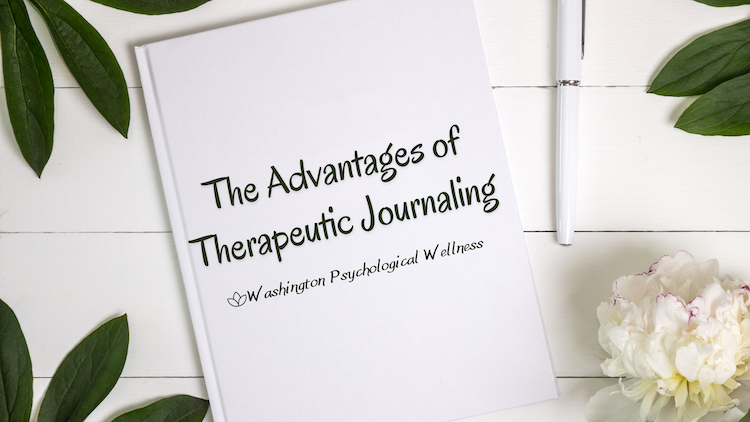The Advantages of Therapeautic Journaling
Therapeutic Journaling
Therapeutic journaling is a type of journaling that concentrates on emotional healing. Unlike regular journaling, which can be used to record memories, thoughts, experiences, and events in one’s life, therapeutic or expressive journals are used for emotional release or to document inner dialogue with oneself. Expressive journals often involve writing techniques such as free association and visualization. Expressive journaling can be used independently, in conjunction with talk therapy, or as a supplement to medication. Advantages of therapeutic journaling.

The Advantages of Therapeutic Journaling
The advantages of therapeutic journaling are numberious. Some are listed below:
- Overcome Distress
Releasing feelings through writing can be an effective way to overcome distress. Coping skills and self-awareness can also be enhanced through writing down one’s feelings and thoughts. Some believe writing things down can have a cathartic effect, releasing or giving form to feelings that otherwise remain dormant. In addition, the act of writing can release the mood-altering chemicals in the brain associated with trauma. Emerging research has shown that journals are effective at lowering stress, especially in women.
- Improve Physical Health
Though therapeutic journaling is generally used for emotional healing, it can also improve physical health when used by patients with chronic illnesses such as multiple sclerosis and cancer. Writing about one’s experience can often reduce stress and can also help patients clarify thoughts. Patients with chronic illnesses who write about their pain experienced less physical distress than those who did not. In addition, the act of writing itself has been shown to increase blood flow to the muscles, which could improve overall health in some cases.
- Gain Introspection and Self-Awareness
Writing an expressive journal regularly can help one become more introspective and develop self-awareness, especially if one practices techniques that focus on inner dialogue or visualization. In addition, research has shown that an expressive journal does increase one’s ability to make decisions based on self-reflection and it can also help an individual understand their past choices and how they may have affected future actions.
- Outlet for Self-Expression
Possibly the most significant advantage of therapeutic journaling is its ability to use writing as a form of expressive therapy. By writing down one’s thoughts and feelings, one can apply different thinking patterns or bring other emotions to light. In addition, writing down and reflecting on what is written can help one become more aware of what they’re thinking and feeling and help them gain perspective on their life. This self-awareness can lead to more meaningful relationships, a better understanding of others, an improved sense of self-acceptance, and overall well-being.
- Treat Anxiety and Depression
Therapeutic journaling may be used in conjunction with one’s treatment plan for an affective disorder such as depression or anxiety. In addition, some believe that expressive journaling can be an effective way to demonstrate one’s feelings and note patterns or triggers for ones’ emotions. This can also help others understand what the individual is going through.
- Supplement to Therapy and Medication
Therapists and counselors could use expressive journals as a supplement to therapy sessions and medication. For example, therapists could give their patients an outlet for emotional exploration and help them identify what they’re feeling by having them write down their inner dialogue. The therapist may then help the patient explore why these emotions are present, how they can be controlled, and the implications for the patient’s life. Therapeutic journaling has also been used with medication to enhance its effects on patients with chronic illnesses, depression, or anxiety.
So, What Are the Benefits of Therapeutic Journaling?
Therapeutic journaling can help individuals achieve emotional healing through the ability to express their feelings through writing. Individuals who experience chronic illness, depression, or anxiety could benefit from expressive journaling by gaining self-awareness and self-reflection, leading to healthier physical and mental states. Therapeutic journaling could also be used in conjunction with talk therapy or medication for added effects.
If you are interested in learning more about therapeutic journaling, contact Washington Psychological Wellness for a complimentary 15-minute initial consultation to see how we can help you today!
